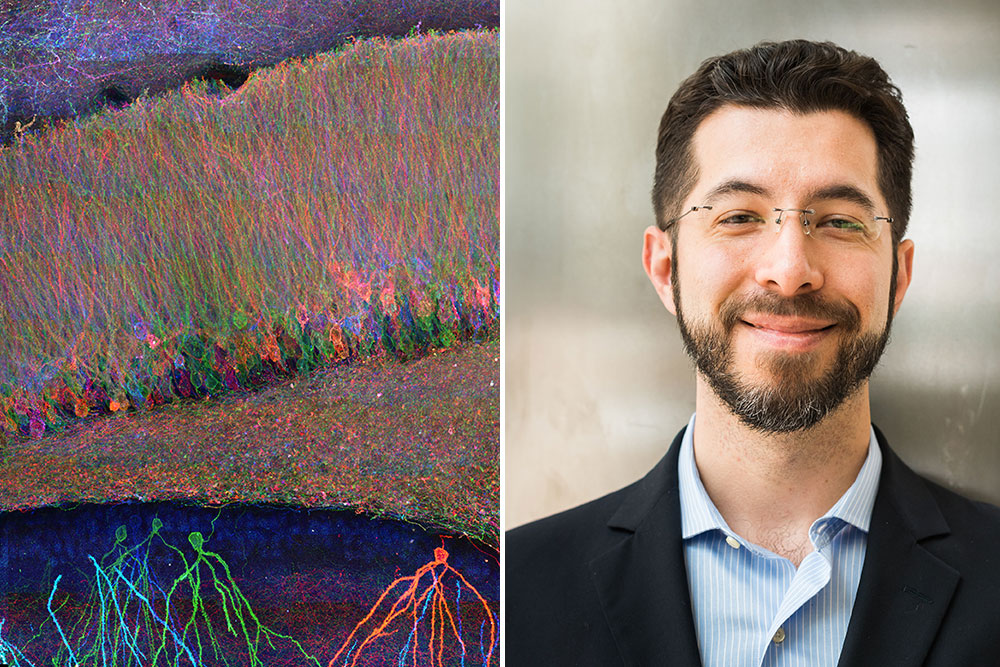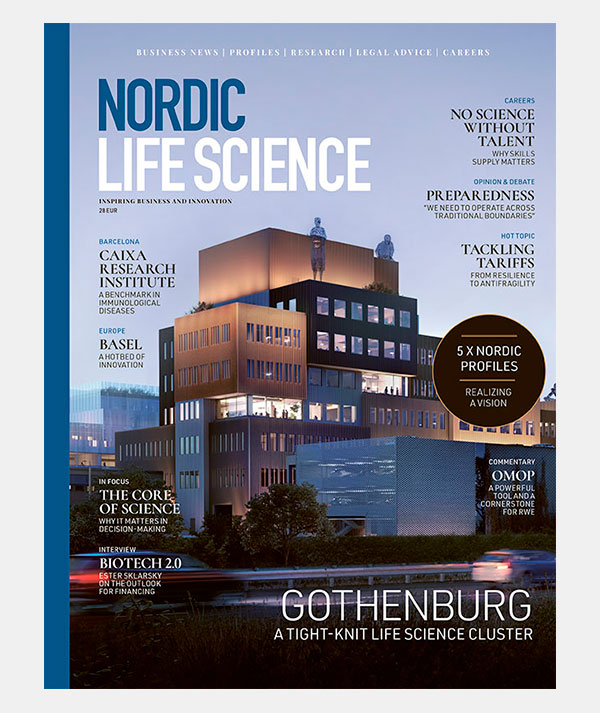“Rare diseases lead the way in precision medicine”

Anna Wedell, Professor and Research Group Leader of the group Inborn Errors of Endocrinology and Metabolism at Karolinska Institutet and Director of the new Precision Medicine Center Karolinska, explains how research in rare diseases has evolved due to new technologies, and emphasizes that identifying synergies is essential for diagnosing and treating these conditions.
Anna Wedell has focused her career on inherited metabolic diseases, a diverse group of rare conditions that impact biochemical processes in the body and can affect individuals of all ages, from children to adults, with symptoms ranging from acute and severe to slow and insidious. She has a particular focus on conditions affecting the brain, especially mitochondrial diseases.
Wedell is a Member of the Nobel Assembly at Karolinska Institutet and member of the Medical Nobel Committee, and she was awarded the Royal Swedish Academy of Engineering Sciences’ (IVA) Gold Medal in 2023 for her efforts in precision medicine. In its justification, IVA wrote that “The Academy’s Gold Medal is awarded to Professor Anna Wedell for her efforts in developing bioinformatics tools and cross-disciplinary working methods which have resulted in precision medicine for rare hereditary diseases being used in various disease areas, which has led to the prevention of severe disease conditions or early death.”

A systemic shift
Clinical medicine is currently undergoing a revolution thanks to new high-throughput technologies for diagnostics, and rare diseases have taken the lead in this transformation. Inherited metabolic diseases are particularly important as they form a large group of conditions with unspecific symptoms and signs where early, rapid diagnostics and treatment often can prevent irreversible brain damage or early death. For example, lysosomal diseases, which result from a deficiency of specific enzymes, can be treated with recombinant enzyme therapy when accurately diagnosed.
Another example is phenylketonuria (PKU), which is when certain food components produce toxic metabolites. This condition can be managed with a carefully controlled diet. There’s also a disease that Wedell found could be effectively treated with a ketogenic diet, the AGC1 deficiency, caused by the absence of a specific transporter.
We are very much in a systemic shift in medicine, thanks to new technologies that allow us to do much more now than we ever could before.
“We are very much in a systemic shift in medicine, thanks to new technologies that allow us to do much more now than we ever could before. Whole genome sequencing is a major advancement in genomics. Interpreting the genome is challenging, but by combining clinical and biochemical expertise, we can tailor high-throughput methods to each patient. This enables simultaneous diagnostics and discovery, allowing us to translate findings into treatments more quickly than before,” she explains.

Inherited metabolic diseases, which are rare conditions that affect the brain, are hidden within the genome. The genome is the organism’s DNA that has the instructions for the development and function of an organism. Mutations in the DNA can lead to the lack of enzymes and proteins causing diseases. The illustration shows the DNA chain, a double helix polymer compound by the nucleotides (A, T, C, G). Illustration: Paula Pérez González-Anguiano
As these innovative approaches become available, accurate diagnostics are becoming increasingly crucial, she adds. “With the advent of these new treatments and improved precision in matching patients with the right therapies, we can avoid ineffective treatments and reduce side effects,” she emphasizes.
Breaking down silos
At the newly inaugurated Precision Medicine Center Karolinska (PMVK) at Karolinska Institutet, Wedell and her colleagues have created a multidisciplinary environment that brings together various types of expertise, both clinical and academic, to improve diagnostics, deepen understanding of the underlying biology, and develop new future treatments for these rare conditions. This model also connects with two other expert centers in Sweden, forming a national collaborative network. It serves as a proof-of-concept in the metabolic area, covering everything from basic science to high-throughput genomics and interdisciplinary, highly-specialized clinical medicine including diagnostics, treatment, and follow-up, describes Wedell.
“Despite numerous barriers, my aim for PMCK is to consolidate and expand this collaborative approach, breaking down silos and spreading it to additional disease areas. This involves promoting new ways of organizing healthcare and working across specialties to integrate diagnostics and treatment, as well as a close clinical-academic partnership to introduce new technologies into healthcare,” she says. “It’s a very exciting time and I am privileged to be involved in this big systemic shift.”

Collaboration is crucial
Wedell’s team is often contacted by clinicians from all across the country for advice. The symptomatology of the patients with rare diseases might vary widely, so a multidisciplinary team of experts is needed. Healthcare in rare diseases involves very collaborative work not only between experts in the different regions in Sweden but also across countries.
“Rare patients are everywhere. We need to use our experts more wisely and form national clusters of competence to share data and collaborate on undiagnosed patients. Since we cannot be experts in all rare diseases, identifying synergies is essential,” she says. She remarks that the new high-throughput technologies won’t replace classical clinical medicine or traditional experimental science, but they should complement and enhance each other.
“By combining classical clinical expertise, strong basic science, and high-throughput methods, we can achieve much more. Collaboration and adopting new technologies while maintaining classical expertise is key,” she adds.

A win-win opportunity
Sweden and other Nordic countries benefit from public trust in science, recognizing the importance of investing in healthcare and research. However, Wedell argues that modern healthcare in Sweden must operate nationally, not regionally, to effectively manage big data, which requires a different organizational structure. This includes modernizing IT infrastructure for data integration, sharing, and reuse, as well as establishing a nationally coordinated system for uniform early access to treatment.
We need to start working and coordinating more nationally, in the area of big data and precision medicine, instead of working in silos and regions.
“We need to start working and coordinating more nationally, in the area of big data and precision medicine, instead of working in silos and regions. This is not something we can achieve on our own, we need our society to support this, and that is, of course, challenging,” she states.
“Individualized early diagnostics and treatment can reduce costs by minimizing severe disease and side effects. A modern national IT infrastructure for big data in clinical medicine will enhance healthcare and support research and innovation,” she concludes. “It’s a win-win opportunity we can’t afford to miss.”
About the author

Paula Pérez González-Anguiano, M.Sc. in Scientific, Medical and Environmental Communication, is a Biotechnologist, Science Journalist and Illustrator based in Barcelona, Spain.
Updated: August 18, 2025, 07:24 am
Published: September 10, 2024











